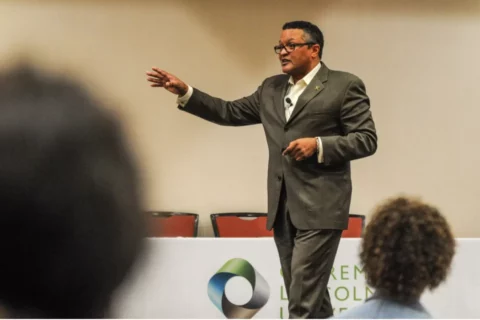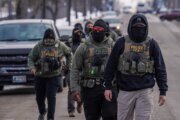
The attorneys general of D.C., Maryland and Virginia have joined 16 other U.S. states in a lawsuit that would crack down on what groups call “ghost guns.”
D.C. Attorney General Karl Racine led the coalition and asked that a judge in the U.S. District Court for the Southern District of New York to compel the Bureau of Alcohol, Tobacco, Firearms and Explosives to properly regulate nearly complete firearms that are easily converted into fully functioning weapons that do not have serial numbers, commonly known as “ghost guns.”
In 2015, ATF issued an interpretive rule of the Gun Control Act, stating that these rifle receivers and handgun frames were not considered firearms because they lacked certain characteristics.
In an amicus brief filed in Syracuse v. ATF, Racine argues that “ghost guns” are a danger to civilians because they impede law enforcement’s ability to track weapons that are used in crimes.
Racine also argues that, according to the Gun Control Act, “firearms” include serial numbers and purchasers must pass a background check. The coalition said that this misinterpretation of the law has caused a surge in these untraceable weapons.
“In the absence of federal regulation, the unlawful sale of unmarked and untraceable ghost guns has proliferated nationwide, endangering District residents and preventing law enforcement from investigating and prosecuting violent crimes,” said Racine in a statement.
“Indeed, these dangerous firearms have been used in several homicides in the District. That’s why our coalition of state attorneys general is asking the Court to order ATF to correctly interpret the Gun Control Act to apply to ghost guns as illegal firearms under federal law.”
Before 2017, D.C. police had never recovered a ghost gun. In 2017, they recovered three such firearms and, in 2019, that number rose to 116. Three of those firearms were used in homicide cases.
These “ghost gun” kits come with parts that allow the buyer to build a fully functional firearm. The kits often include receivers or “lowers” for rifles and frames for pistols.
Other parts are often needed for final assembly, most notably a barrel and slide for a handgun and an “upper” for a rifle. Many of these kits require complex milling to assemble the final firearm.
An attractive quality of the gun is that it lacks a serial number and makes it extremely difficult to trace the owner of the weapon. The initial kit does not require a background check when purchased since it is technically not a firearm.
Currently, it is federally legal to make your own firearm if it’s for your personal use and you don’t intend to sell it. Earlier this year, D.C. passed a law banning the kits from being sold in the District.
Earlier this month, federal agents raided one of the largest manufacturers of these kits.
Nevada-based Polymer80 was raided by the ATF after the agency said the company’s “Buy Build Shoot Kit” met the requirements for a firearm and need a serial number.
The company manufactures unfinished, often referred to as 80%, receivers and frames. This is the same manufacturer that was sued by Racine earlier this year.
Gun rights advocates have rebuked this motion. In a release from the National Rifle Association after the raid on Polymer80, the organization’s institute for legislative action said, “The items require significant expertise, time, effort and specialized tools in order to be used to assemble a working firearm, therefore they do not meet the definition of a ‘firearm’ under federal statute or regulation.”
“Why are we even having this question? If we have a right to make and bear arms, we have a right to make them,” Matthew Larosiere, director of legal policy at the Firearms Policy Coalition, told The Associated Press last year.
It has become extremely popular with gun enthusiasts as a unique way to build your own gun. It also offers a legal way for gun owners who are wary of the government being able to keep tabs on what weapons they own.
Advocates also warn that outlawing these kits nationwide years after they became legal would turn many law-abiding gun owners into criminals.
The attorneys general of Connecticut, Colorado, Delaware, Hawaii, Illinois, Maryland, Michigan, Minnesota, New Jersey, New Mexico, New York, North Carolina, Oregon, Rhode Island, Vermont, Virginia, Washington and Wisconsin joined the lawsuit.








